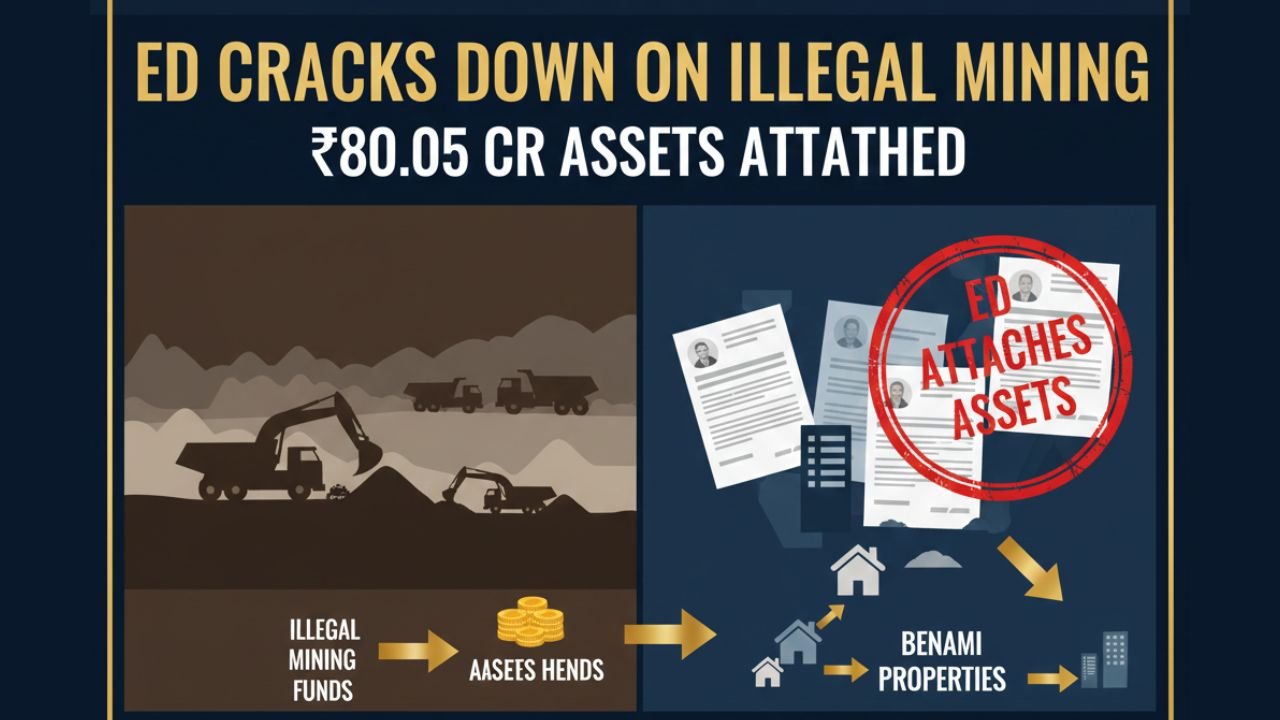Hyderabad: The Directorate of Enforcement (ED), Hyderabad Zonal Office, has provisionally attached immovable and movable assets valued at ₹80.05 crore under the Prevention of Money Laundering Act (PMLA), 2002, as part of its ongoing investigation into alleged illegal mining carried out by M/s Santosh Sand & Granite Supply.
Algoritha Prepares You for Seamless DPDP Compliance — Contact Us for Complete Implementation Support
Probe Originated from FIRs Alleging Major Revenue Loss
The investigation was initiated following FIRs lodged by Patancheru Police, Telangana, which accused the firm and its proprietor Gudem Madhusudhan Reddy of exceeding extraction limits within the government-allocated quarry and carrying out illegal mining on adjoining government land.
According to the FIRs, these activities caused a royalty loss of ₹39.08 crore to the state exchequer. The agency further suspects that the accused generated unlawful gains of nearly ₹300 crore by mining and selling material extracted outside authorised boundaries.
Searches Uncover Property Deeds, Benami Holders and Concealed Ownership
During the course of searches, the ED seized several original property documents, including title deeds and registration papers, from Reddy’s possession. A detailed audit of these documents revealed that, although the properties were registered under the names of several individuals, Reddy was the actual beneficial owner.
Statements recorded from the purported owners confirmed that they were merely benami holders, whose names were used to obscure the source of funds and the true ownership of assets acquired from illegal mining proceeds.
Illegal Subcontracting Arrangement Detected
The ED found that the mining lease granted to Santosh Sand & Granite Supply had been illegally subcontracted to M/s GVR Enterprises, a partnership firm owned by Gudem Madhusudhan Reddy and G. Vikram Reddy.
According to the agency:
- Such subcontracting violated the terms of the government lease,
- No approval was obtained from the authorities, and
- The arrangement enabled large-scale illegal extraction and cash-driven sales, which obscured the revenue trail.
This unauthorised subcontracting, the ED noted, formed a crucial component of the operational structure behind the illegal mining racket.
Cash-Based Sales Channelled into Real Estate; 81 Properties Attached
Investigators found that the illegally mined material was predominantly sold in cash, creating substantial unaccounted income. These funds were subsequently used to purchase:
- Residential plots
- Agricultural land
- Commercial real estate
- Other immovable assets
Most of these acquisitions were made in the names of benami individuals, forming a deliberate structure to conceal proceeds of crime.
The ED has so far attached 81 benami properties valued at ₹78.93 crore. In addition, receivables owed to GVR Enterprises by buyers of illegally mined material were classified as Proceeds of Crime. On this basis, fixed deposits totalling ₹1.12 crore have also been attached.
Investigation Expands to Additional Transactions and Entities
The agency said the investigation is ongoing, with multiple financial transactions, cash flows and property movements still under examination. Officials indicated that the case points to a larger network involving illegal mining, benami structures, revenue evasion and money laundering.
Further regulatory action may include:
- Identification of additional properties
- Scrutiny of layered financial transactions
- Freezing of further proceeds of crime
- Possible arrests and supplementary attachment orders
According to officials, the developments so far reveal a systematic method of exploiting natural resources and subsequently laundering the resulting illegal gains through real estate and benami channels.


